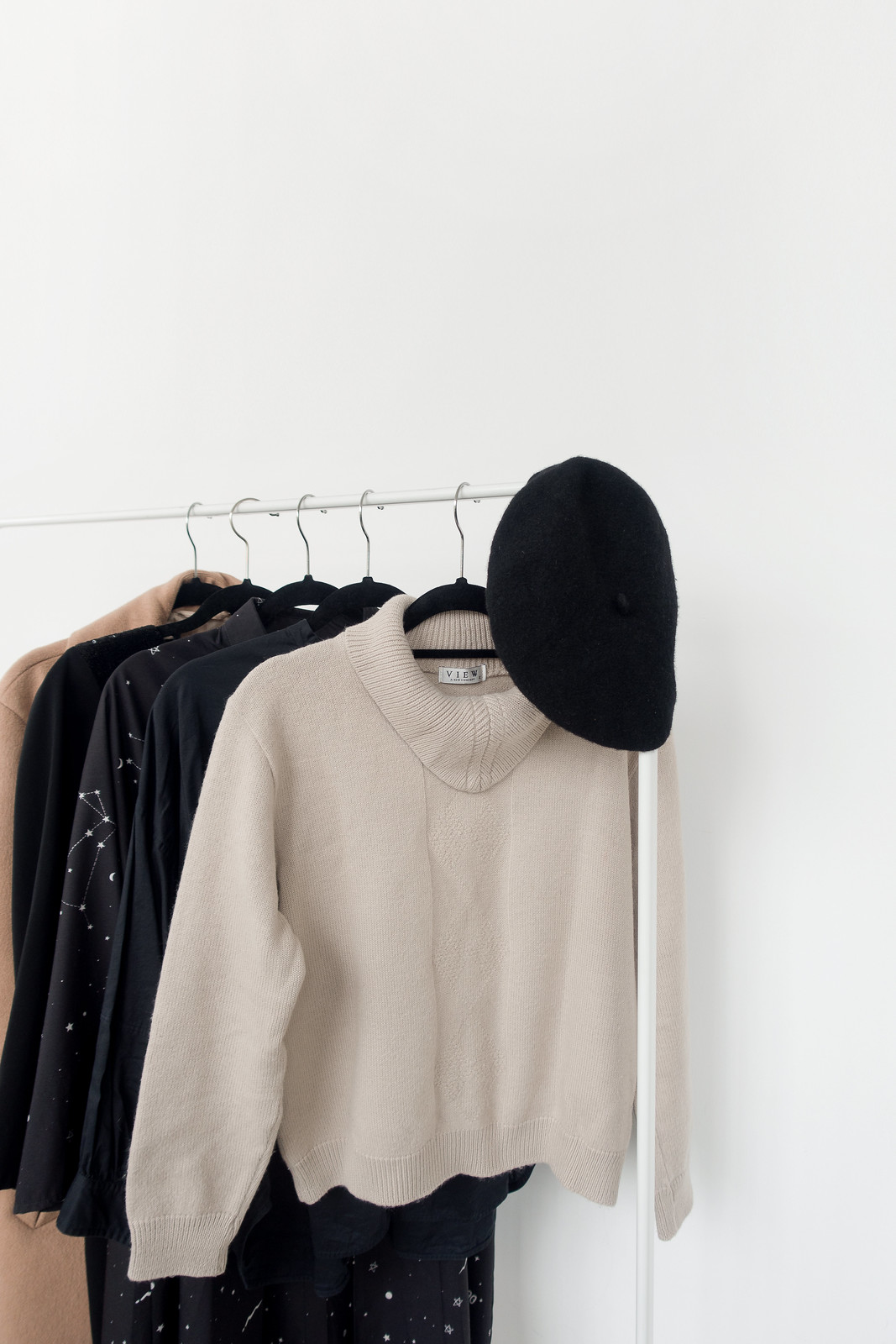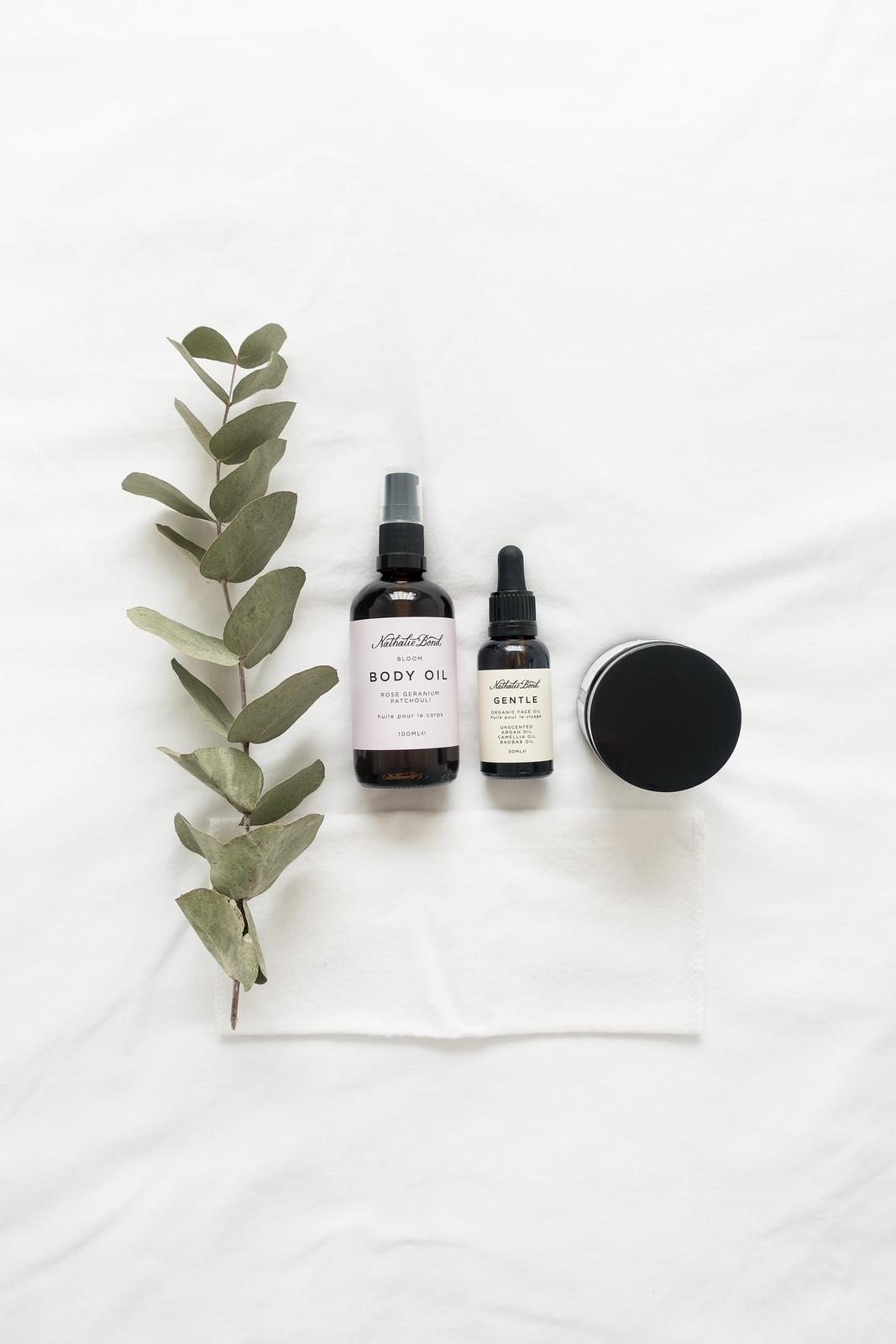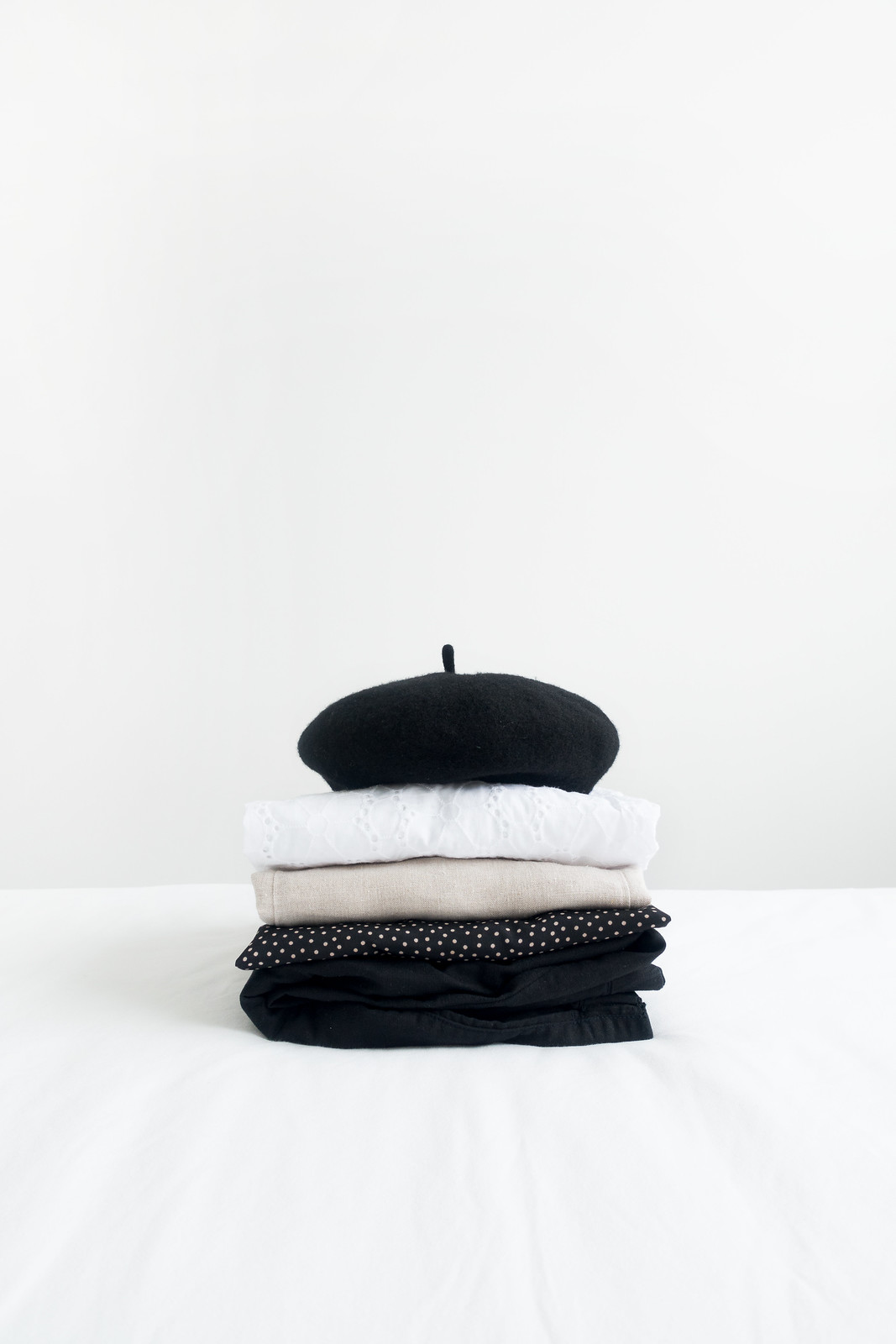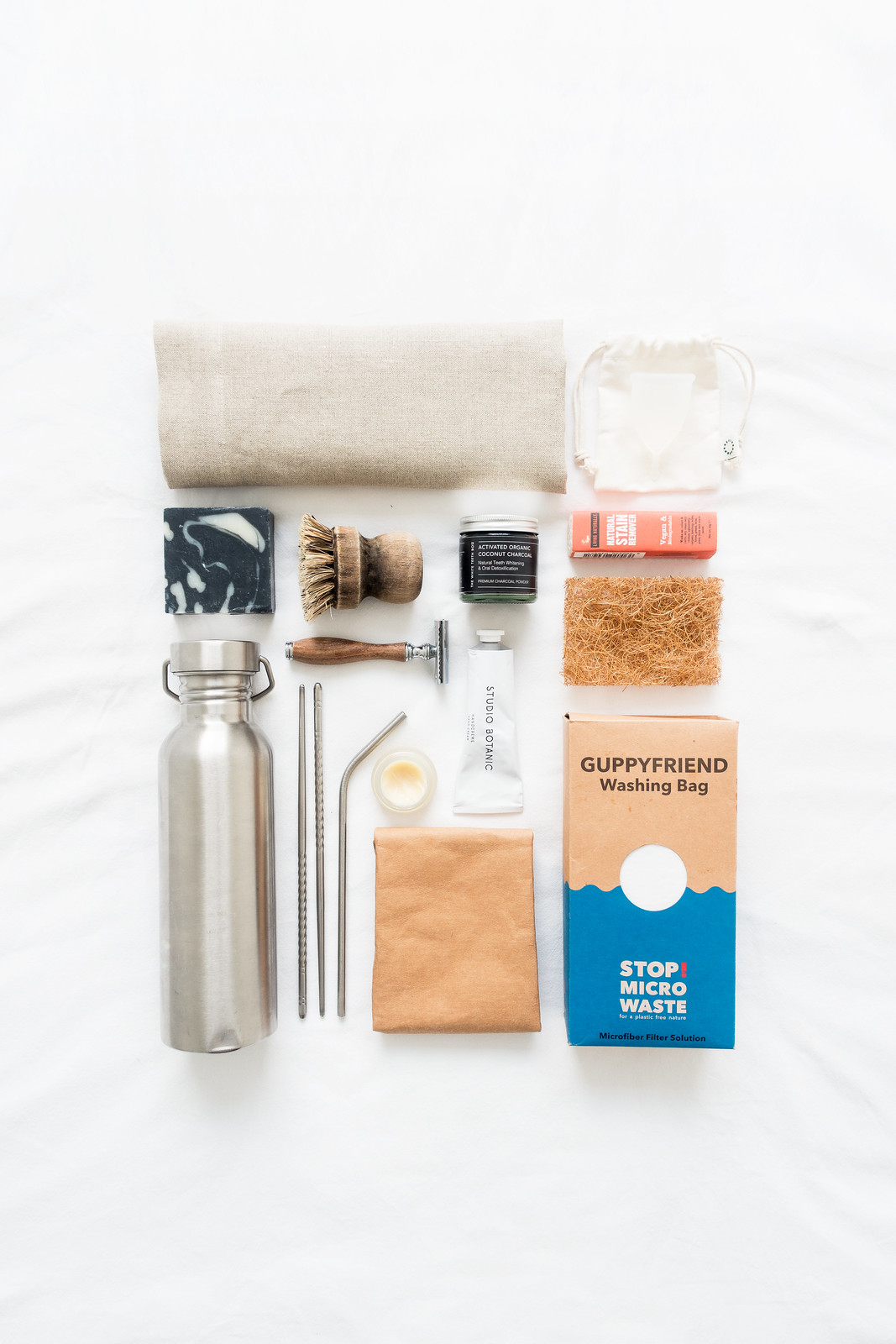
Influencer advertising is largely unregulated. There are some laws and a few regulations but these are often misunderstood or straight up ignored. There's a lack of transparency and honesty from both the creators and the brands. There's also a lot of free labour being demanded and if creators do get paid they're criticised for it. The conversation about how and why creators work with brands online is one that keeps popping up recently. Inspired by Lauren, Lo, Emily, and Signe, I wanted to share some of my own thoughts on sustainable influencing and the work we do with brands.
I enjoy helping others make more sustainable choices and I provide a lot of free content to enable people to do that. Twice weekly blog articles and daily Instagram Stories for almost six years. I'm constantly replying to DMs and emails answering questions and helping people understand low waste, plant-based, simple living issues. In order for me to do this, like many other creators, I work with brands. I occasionally work on a paid basis but many brands can't (or don't want to) pay. So instead I accept gifted products and experiences. It makes my life more affordable and helps you to make better choices about what to buy.

I was criticised by another blogger for doing "too many ads". I'm not going to lie, it struck a nerve. Not least because the person who said it pushes for sales of their ecourse but also works with brands on a paid-for basis. It seems quite hypocritical to take a pop at someone for doing a similar thing in a different way. It's not uncommon for influencers to be criticised for not supporting independent businesses more often (and for free), and I regularly have my photographs used by brands to promote their own products without permission, payment, or even credit.
Last year I wrote over 100 articles, 5 of them were paid-for features (although one brand failed to pay me), and I championed many independent businesses on my social media mostly for free. Over a 12 month period, I don't think that's too many ads - perhaps you feel differently. I can forgive the assumption that I'm always getting paid to promote brands because it can certainly seem that way. I'm working on making this clearer for you starting with this post.

Ellie wrote about why she's no longer working with brands. It's something I've been thinking about a lot lately but it isn't something I can afford to do right now. Without being paid to write articles or accepting products I need (which means I save money by not having to buy them) I simply couldn't continue to do what I do.
It's very easy to judge writers, content creators, bloggers, photographers, influencers - whatever you want to call us - for accepting money in exchange for promoting brands and their products. I get it. It can make you wonder whether someone really likes the thing they’re promoting or whether it’s the money they truly care about.
I'm very aware of how too many ads can make people feel because it makes me feel that way too. Too many or the wrong brands and you start to question someone's authenticity, and rightly so. Is it genuine enthusiasm or just a cash-grab? How can we trust someone's recommendation when every new product they receive is their new favourite? How do we know the product is actually worth the money when we doubt the honesty of the review?
Another valid reason for feeling uncomfortable about promotions is when we see too many from people talking about sustainability. It can be just as bad as any other influencer in terms of encouraging consumerism. If every week they're receiving new things, how is that sustainable? We cannot shop our way to a healthier planet. The promotion of continuous consumption is unsustainable, no matter whether the brands are ethical or not. It's something I'm acutely aware of.
But at the same time, without the occasional paid-for feature and gifted items that make life less expensive, all that unsponsored content we consume for free just wouldn't be sustainable. We can't complain about ads by the people we follow while also refusing to send a few coins their way when we enjoy something they've created. If we complain about both and refuse to accept either one, the content we enjoy will disappear completely.

Lo highlights the issue with considering writing a blog as a 'frivolous hobby' where your creativity doesn't deserve payment because it's dismissed as being a fun pastime rather than valuable work. A lot of people have internalised that sexism. Brands have been able to make demands of bloggers, expecting content be produced for free in return for very little. Readers of blogs and followers of social accounts have come to see paid-for features as inauthentic. Yet writing articles on a blog and microblogging on social media deserves to be supported like any other form of entertainment or education.
Blogging isn't a hard job but it is time consuming and requires skill. It's a valuable form of media to both brands and readers alike. Influencer marketing is powerful and a useful tool for brands to promote their products with (hopefully) honest reviews, and readers have access to blogs with years and years worth of informative content on the topics that matter to them. All this requires an immense amount of time, energy, and skill to produce, something that's easily overlooked when we browse glossy magazine-like blogs and pretty Instagram feeds. It's hard to see the work that goes into producing the free content you consume on a daily basis because it's made to look so effortless.

Recouping the time, energy, and money invested in a blog or social media account is a troublesome issue. Ebooks are great but they don't generate much income and ecourses make me uncomfortable as they're often just repackaged free content with a price tag. I've tried Patreon, it didn't work. People don't want to pay for content they can access for free and I absolutely understand that. Ko-Fi is a better option and I'm grateful for everyone who chooses to support me there. It helps make the hours I spend writing and sharing online sustainable. But it's not enough to balance out the amount of time I sink into my blog and social media each week. In order for me to do that, I need to keep working with brands.
I try to use my position to help others make better decisions. Alongside all the free content on my blog and social media helping you to live a considered life, I also share reviews of products so you know what to buy (and what to avoid!) some of which have been gifted to me by brands. I only accept things I need or will use (or can pass on to others in need) made by brands who are ethical, sustainable, and eco-friendly. Below is a breakdown of each of the different ways I work with brands. I hope after reading you have a clearer idea of the content I create with brands and why it's so important for keeping this blog and my social media up and running.

Working With Brands
Gifted Items
I accept gifts from brands and I treat them as such. I am under no obligation to share these gifted items anywhere online, however, I only accept things I know I need or will use (or can donate to those in need) so I usually do share everything I receive.
In the UK, any and all gifted items must be marked as an AD because the ASA and CMA consider them payment and therefore advertisements. That's the law. Social media posts must include 'ad' at the beginning of a caption or within the title, and I choose to distinguish gifted items from paid-for advertisements by including 'ad:gifted' when a gifted item is featured.
There's an argument for never accepting gifted items as a blogger and only working with brands on a paid-for basis. Personally, I believe there's room for both. Firstly, I only ever work with brands I believe to be ethical and sustainable, and I prefer to support small independents. These brands typically have restricted budgets and reviewing their products can help boost their exposure. If creators only ever worked with businesses who can pay for features, independent brands would disappear.
Secondly, reviews are valuable to all of us. Whenever I'm buying something, I always read what other people have said first. I'm in a privileged position where I've built my blog and my social media to a point that brands want to work with me. By sending me their products, it's a good opportunity to provide you with an honest review so you know whether it's something worth spending your money on. When deciding between where to purchase responsibly-made clothing or sustainably-made homewares, blogger reviews can help with the buying process.
Affiliate Links
By clicking on affiliate links, I receive a commission on any purchase you make. It doesn't cost you anything extra and it's an easy way for you to earn the creators whose content you enjoy without paying out of your own pocket. I rarely use affiliate links though.
Pushing sales to earn a commission feels at odds with the minimalist lifestyle. I think it's all too tempting to opt for affiliated brands whenever possible to earn money, and it can sway your opinion when deciding which brands to include in posts. Ultimately, I don't want to encourage people to buy things they might not need just so I can earn money from their clicks.
I'm an affiliate with two brands: Everlane and Organic Basics. Two brands whose clothing I have been gifted, have purchased myself, and would purchase again. I feel comfortable being a part of their affiliate scheme and recommending them to you alongside many others brands I don't receive commission for linking to. I may consider joining other affiliate schemes but only for brands I have been buying and using for years.
Dedicated and Integrated Features
These are paid-for collaborations. The money from these advertisements cover the costs of domain hosting, image hosting, cloud storage, and my time.
I'm paid by the brand to talk about their product or service. There are strings attached in the form of a contact. I have to post within a period of time, mention certain things, use specific hashtags, take original photographs, and write a certain amount of words about their product or service.
Dedicated features are entire posts about a specific brand or their product. Integrated features are posts where a small section of the content has been paid for by a brand, usually a product review or mention. I also offer social media ads, which are posts designed specifically to promote a brand or promote.
Any paid-for content is marked with AD in the title or at the beginning of a social post so you know what you're looking at or reading has been paid to be created. I'm never paid to give a positive review and if I were to dislike a product after agreeing to work with a brand, I wouldn't go ahead with the feature.

